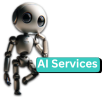In today’s technology-driven world, STEM (Science, Technology, Engineering, and Mathematics) education has become more crucial than ever. The demand for technical workforce is on the rise and more and more companies are expanding their research and development portfolios.
The technological landscape is evolving rapidly, but the STEM curriculum is usually outdated and lagging. It has repeatedly failed to provide students with the necessary skills and experience to contribute to this revolution. The curriculum development services can lend a hand with their expertise in this matter.
Listed below are some challenges faced in curriculum development and how curriculum development services can help overcome them keeping the curriculum relevant and effective.
Role of Curriculum Development Services
- The Need For Innovative STEM Curriculum
The traditional approach to STEM education involves less practical knowledge and more rote memorization of facts. The students lack the necessary skills and hands-on experience to cater to the research and industrial needs of today.
The curriculum development services can collaborate with educators and experts in the field to design an updated and relevant curriculum that would incorporate the latest trends in technology, scientific advancements, and global challenges.
Relatively newer subjects like artificial intelligence, robotics, and environmental sustainability will also find a prominent place in curricula. The curriculum may also be pushed toward project-based learning which would help students to apply theoretical knowledge to real-world problems.
- Integrating Interdisciplinary Approaches
STEM education is not just about teaching separate subjects science, technology, engineering, and math individually. The practical problems require interdisciplinary knowledge to be solved.
As mentioned earlier, curriculum development services can introduce project-based learning in STEM education. They can design projects based on real-world problems depending on the student’s needs and levels and can share detailed implementation strategies with educators to provide students with an improved learning experience.
- Customization For Diverse Learners
Students come from diverse backgrounds and have different learning needs. A single rigid curriculum may not fit every student in the classroom, diminishing interest and participation from students.
The curriculum development services can personalize the curriculum to align with student’s needs and interests. Factors like prior knowledge, learning pace, and preferred mode of learning will be taken into account. This way schools can ensure quality education for every student.
- Incorporating Digital Tools And Technology
Technological literacy has become a necessity for a student. Computers are an integral part of personal and professional lives. A vast multitude of new information is being digitally added every second.
Digital simulations are being increasingly used to test out new ideas before implementing them physically. Traditional curricula have failed to effectively incorporate these digital tools and technologies in STEM education.
Curriculum development services can embed cutting-edge technologies like coding platforms, digital simulations, and interactive software into the learning process, enabling students to gain hands-on experience with the tools they’ll need in their future careers.
- Enhancing Teacher Professional Development
Curriculum development is not just about designing materials for students, it’s also about equipping teachers with the knowledge and resources they need to implement effective STEM education. Teacher professional development programs that align with curriculum changes are crucial in ensuring the success of a modernized STEM program.
Curriculum development services can support teachers by providing training workshops, ongoing support, and access to resources that will help them adopt new teaching methodologies and incorporate the latest technology into their classrooms.
These efforts help ensure that teachers are well-prepared to teach the evolving STEM content and can effectively engage their students in meaningful learning experiences.
Conclusion
Curriculum development services are central to revolutionizing STEM education. By helping to create dynamic, interdisciplinary, and technology-infused curricula that cater to diverse learners, these services ensure that students are equipped with the skills and knowledge needed to succeed in the future.
The role of curriculum development services extends beyond just the materials they are instrumental in preparing educators and shaping an educational environment that fosters creativity, collaboration, and critical thinking, all of which are essential in a rapidly changing world.
Frequently Asked Questions
The traditional curriculum for STEM education involves less practical knowledge and more rote memorization of facts. The students lack the necessary skills and hands-on experience to cater to the research and industrial needs of today.
Irrelevant and outdated curriculum does not teach students contemporary skills required for their all-round development. Due to a lack of practical knowledge and hands-on experience, they find it difficult to advance their careers in this technologically driven world.
Curriculum development services can redefine curriculum by collaborating with educators and field experts aligning it with the present and future needs. They can use interdisciplinary and project-based approaches to learning to modernize the STEM curriculum.
Curriculum development services can support teachers by providing training workshops, ongoing support, and access to resources that will help them adopt new teaching methodologies and incorporate the latest technology into their classrooms.









